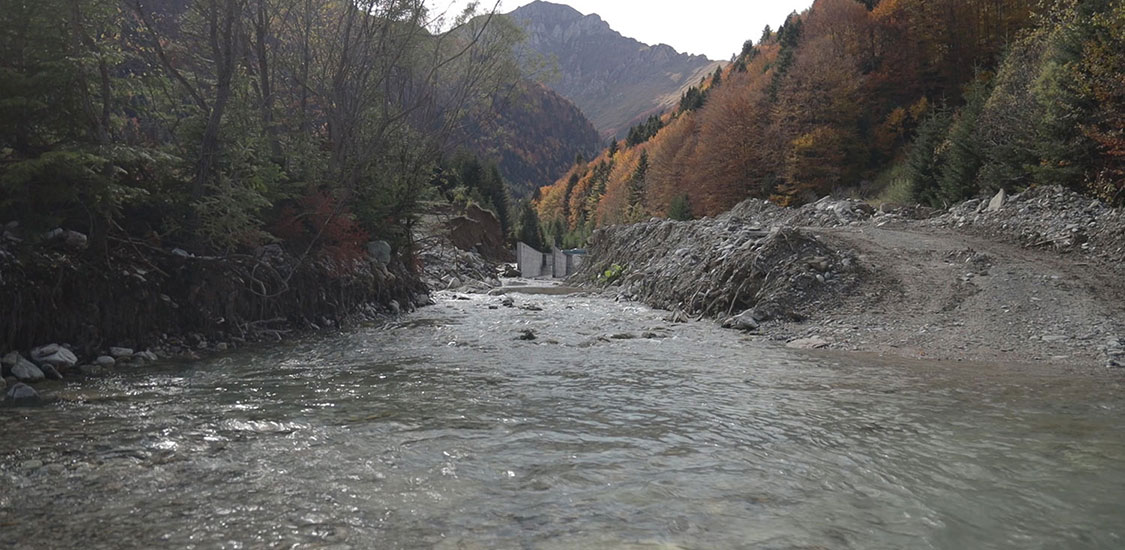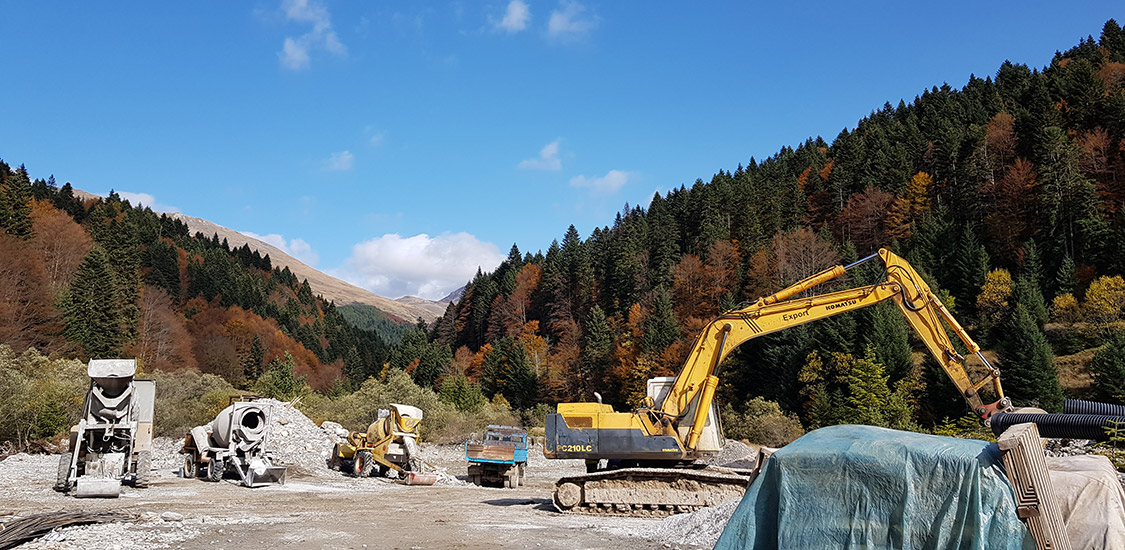
Small hydropower plants – big secrets!
Transparency in adoption of laws, changing bylaws and regulation, construction and promotion of small hydropower plants as well as complete lack of transparency in terms of money paid by the Government to the companies. The investigation on which companies receive most of the Government money intended for subsidizing renewable energy sources (small hydropower plants, photovoltaic systems, wind power plants and biogas plants) lead to a maze of institutions. The final conclusion is that this is confidential information, regardless of the fact we are talking about money coming from the pockets of the citizens.
According to Article 8 of the Law on Classified Information, “classified information labeled as ‘CONFIDENTIAL’ is information whose unauthorized disclosure would cause serious damage to the important interests of the Republic of North Macedonia”.
What important national interest are we talking about when the money is outflowing from the Government (in this case from the National Electricity Market Operator MEMO DOOEL) towards private companies that deal with renewable energy sources? Presently, there is no answer to this question.
On additional note, these companies are owned by former officials who are people close to the Government, as well as individuals from opposition and foreigners – they are all main investors in the business of electricity generated from renewable energy sources. These also include companies that are directly or indirectly connected with the former Deputy Prime Minister, Kocho Angjushev.
As we already pointed out, six percent of the electricity bill paid by the citizens goes to subsidizing renewable energy sources. The hydropower generated by small hydropower plants produces a modest amount of electricity, but the money that go to the companies that generate it is quite high. During a 10 years period (2010 to November 2020), 91 million euros were spent as costs for electricity generated by the preferred electricity producers, in this case those are small hydropower plants.
The authorized producers using feed-in tariffs account for only 6.17 percent of electricity generated by domestic producers, and environmental groups say that the small hydropower plants are causing significant environmental damage in environmentally sensitive areas. They are financed from the electricity bills in the form of preferential (feed-in) tariffs, through MEPSO AD company, that is, through the successor company MEMO DOOEL which was established in 2019, who obtained license from the Energy Regulatory Commission in order to organize and manage the electric energy market.
The license obtained by MEMO DOOEL from the Regulatory Commission on 25th September 2019 says that the “National operator is required to ensure and guarantee confidentiality of the business data included in the contracts signed by the electricity market participants“.

quote from the license for doing business issued to MEMO
The reasons why this was done remain unclear – on 12 February 2021 we sent a correspondence to MEMO DOOEL with questions on this topic, and we contacted by phone the Director of MEMO, Simon Shutioski, but we received no answers by the time this story was published.
Nobody knows who has information on how much money was paid to private companies for the small hydropower plants.
The question of how much citizen money was paid to each company that deals with generation of electricity using small hydropower plants leads to a chaotic labyrinth between institutions that is difficult to get out from.
Initially, we asked a question to MEPSO Company in January 2021, and the answer was that they are not able to provide financial data for payments made in relation to generation of electricity from renewable sources (more specifically small hydropower plants) by preferred electricity producers because “the agreements include a confidentiality clause which prevents the disclosure of the data requested”.
The company refers to an agreement that has been in force since October 2020, where Article 33, regarding the confidentiality of data, states that “the contracting parties agree to ensure the confidentiality of all data and information they exchange and that they shall use all information and data solely for implementation of their obligations arising from the Agreement, as well as from the Law on Energy, the Electricity Market Rules and the relevant grid rules”.
We sent a request for free access to public information to MEPSO AD Company that included a demand for a list of ten owners/ companies to which MEPSO company paid most of the money in the period 2010-2019 for purchase of electricity at feed-in tariffs”. We received an answer that “the request will be forwarded to the information holder, in this case, the newly established electricity market operator MEMO DOOEL company”.
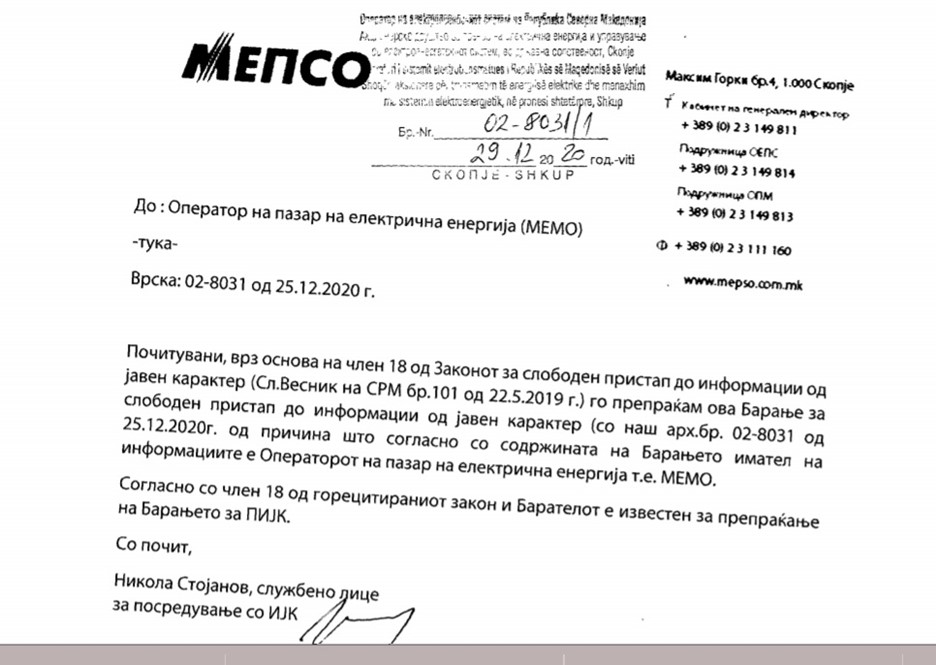
Printscreem of the request sent fropm MEPSO do MEMO
Here we encountered another obstacle in trying to find out how much money was paid to which company in the segment of subsidizing renewable energy sources. The electricity market operator MEMO DOOEL, according to the answer we received, has not yet been registered with the Agency for Protection of the Right to Access Public Information and is currently undergoing the process of registration. This would practically mean that until MEMO DOOEL is registered as a holder of public information, that information is considered confidential, and the second part of the letter says that they have payment information only for the last three months of 2019.

Извадок од одговорот што го добивме од „МЕМО“
“Given the fact that the National Electricity Market Operator MEMO DOOEL Skopje company started doing business 1 October 2019, the company has information on money paid to power plants for only three months, namely October, November and December 2019”, reads the MEMO letter. They add that all other information is owned by MEPSO – the same institution that previously referred us to the successor company.
In all this maze and being unable to obtain the information requested as the institutions were ping-ponging each other, we addressed the Agency for Free Access to Public Information, where they told us that every state institution is obliged to respond to requests for free access to information, since the moment of its establishment.
“The list of information holders is evolving and, regardless whether the institution is on our list or not, it is obliged to respond to requests for free access to public information. From the moment a state or public institution is established, it automatically becomes holder of public information”, said the Agency.
This practically throws out of the window the response from MEMO DOOEL company that it cannot provide us with the data requested because it was not registered in the Agency. However, there are still two more puzzling questions: whether this information is indeed confidential and who is actually the owner of that information – is it MEPSO or MEMO as a successor company, given that both companies were pointing out to the other.
The data must not be secret
According to Misha Popovic from the Institute for Democracy (IDSCS) when it comes to citizens’ money, the data on payments in relation to the feed-in tariff must be transparent.
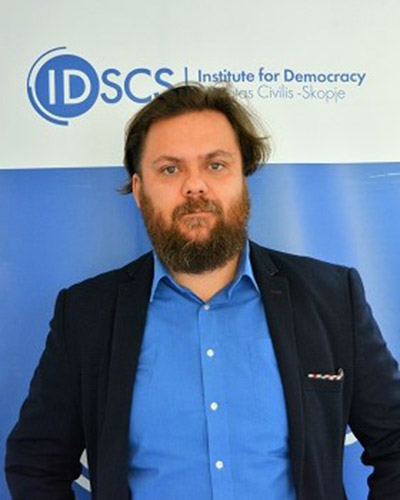
„The privileges, or subsidies, are the result of a particular policy and, therefore, confidentiality cannot be justified as it is the case in other dimensions of a market economy. At the moment when a privilege is granted, by transferring part of the cost to the users or taxpayers (in terms of how the subsidy is paid), then the principles of transparency apply in the same was as for other state institutions. Such information cannot be secret”, Popovic said.
The State Commission for Prevention of Corruption instructed us to first contact the Directorate for Security of Classified Information and the Agency for Protection of the Right to Free Access to Public Information.
“Additionally, please be advised if there are suspicions or leads, in that case the State Commission for Prevention of Corruption can act”, said the Commission.
The data confidentiality regarding subsidies for foreign investors has been removed
There was a similar situation more than 3 years ago the outflow of taxpayer money into private companies was marked as confidential. Back then, the contracts between the Macedonian Government and the foreign investors receiving subsidies were considered confidential. If someone were to try to get information how much money did the previous government led by VMRO-DPMNE paid to the foreign investors in the country, including information on foreseen employments, the only document that would have been received were sanitized versions with XXX replacing the actual figures.
Once SDSM came to power they removed the confidentiality from these documents and it became known that the Government was paying 11 thousand euros in subsidies per job position to foreign companies who decided to invest in the country.
The Directorate for Security of Classified Information also provided their feedback on these questions, as we were properly referred to them by the State Commission for Prevention of Corruption, once we send them the documentation we had.
“Determining whether an information is of a classified nature is done in accordance with precisely defined criteria included in Article 6, Paragraph 1, item 3 of the Law on Classified Information, including the criterion that the information relates to public security, defense, foreign affairs or security or intelligence activities of the state. As the stated information does not meet these criteria, it is not considered classified information, was the response of this Directorate.
The Directorate also explained that the creator is the one who creates/ determines the classified nature of the information/ documents. A creator can be any institution or state body or legal entity in the country, and in this case it is AD MEPSO company or its legal successor, MEMO DOOEL company.
The response from the Directorate additionally explains that “Before claiming liability or sanctions for the information holders, it is necessary to conduct a harm test in order to determine whether the publication of such information and the consequences on the protected interest are less than the public interest that would be achieved by the publication of the information. When conducting the harm test, the provisions of the Law on Free Access to Public Information shall apply. If the classified information conceals facts related to exceeding of the authority, abuse of office or any other illegal act (for example, criminal offense) such information will not be considered classified. Therefore, in cases when there is a suspicion of corruption and conflict of interests, the State Commission for Prevention of Corruption is the competent body for dealing with reports from individuals and legal entities”.
In the meantime, we filed a complaint with the Agency for Free Access to Public Information. We complain to them about the inability to determine who is actually the holder of the information about money spent by the citizens for feed-in purchase of electricity generated from small hydropower plants.
The Deputy Prime Minister Kocho Angjushev is one of the biggest players
The regional “Who pays and who is making the money” research prepared by the largest network of environmental organizations “Bankwatch” during 2019 regarding renewables (which also included Macedonia), the title of the analysis pertaining to Macedonia is “Small contribution – big damage”.
The Report says that the “list of producers receiving subsidies is available only in theory. There is no information on how much money is received and the list is not updated on regular basis”.
The analysis states that most of the subsidies through feed-in tariffs are received by the Feroinvest Group, which owns over 20 power plants, which is almost one third of the total number of small hydropower plants in the country. Feroinvest is owned by the former Deputy Prime Minister Kocho Angjushev, his brother Todor Angjushev and Nikola Gravchev.
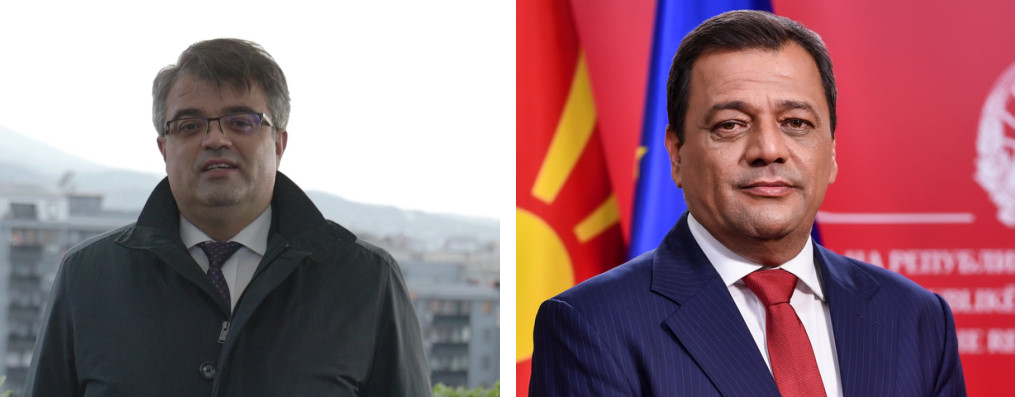 Todor and Kocho Angjushev brothers who are among the top in the small hydropower plants business league in the country.
Todor and Kocho Angjushev brothers who are among the top in the small hydropower plants business league in the country.
The website of this company says that the “small hydropower plants” sector is the national leader in generation of clean electricity from 25 small hydro power plants.
In 2018 Mr.Angjushev was a Deputy Prime Minister and one of those that presented the draft Law on Energy that was accepted by the Government. He said that the Law provides for increased participation of the renewables in the total generation of electricity and that the Government will work on using all potentials available for electricity generation from wind, sun and water.
In November 2019 Mr.Angjushev announced that he will be resigning, explaining that he does not belong in the technical Government. In January 2020 he resumed the management of Feroinvest and this company owns more than 10 other companies, most of them dealing with electricity generation.
Before the end of the year, the Government extended the contracts of several concessionaires of small hydro power plants, including the Hydrogen Energy Group – a company in which the ex Deputy Prime Minister Angjushev holds equity. It owns a concession for construction of two mini hydropower plants within a strictly protected zone in the National Park “Mavrovo”.
These are two hydropower plants located above the village of Zhirovnica, known as Zhirovnica 5 and 6. Two years ago, the Municipality of Mavrovo-Rostushe canceled their construction permits following huge reactions by the local population. They protested because of the potential danger that the village will be completely deprived of drinking water.
According to AD MEPSO information, in the period 2010 – November 2019 more than 229 million euros were spent for electricity generated by the preferred electricity producers.
This content was prepared by Institute for Communication Studies
Journalist: Meri Jordanovska
More on the topic: We are paying – they are getting rich





